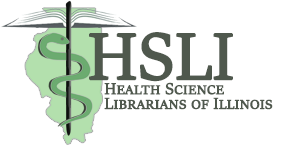(via Nicole Swanson, CARLI)
CARLI is pleased to share upcoming Professional Development Alliance offerings.
Colonial Archives in the Classroom: Student and Instructor Perspectives
Where does research end and creative imagination begin? How might teaching archival literacies to students also involve understanding poetry and storytelling? And how might empowering students to produce original work from the archives allow historians, curators and publishers to re-imagine the voices present and absent in the archives – the primary evidence we have of our past?
This panel brings together the voice of an instructor, Professor Christine Wiesenthal and her undergraduate student Saloni Sharma from the University of Alberta, as well as the PhD student, Shebati Sengupta, from the University of New Mexico. They will be joined by a publisher of primary source collections, Dr. Laura Blomvall from AM, in an effort to stage a conversation between instructors, students and publishers on student success in the context of the colonial legacies in the archive.
August 28, 1:00-2:00 PM CDT
Wait? We’re Drawing? Engaging Visual Strategies for First Year Library Orientation
At the University of Memphis, librarians designed a highly visual lesson to improve first-year students’ knowledge of library spaces. Incorporating research on the relationship between drawing, cognitive engagement, and recall, librarians sent students out to interact and explore the library with a series of guided questions and maps. When students returned, they created a collaborative portrait of the library’s spaces. Presenters Ashley Roach-Freiman, Carl Hess, and Jessica McClure will highlight the lesson plan and the reasons behind their unique form of engagement as well as present findings of post-surveys and collaborative portraits collected during the sessions.
September 7, 1:00-2:00 PM CDT
Successful Workplace Communications Series: Assume Positive Intent
When someone gets in a disagreement with us, or when someone fails to meet expectations in their work, or when someone acts in violation of rules, procedure, or social convention, we make certain assumptions. We assume they are choosing to act inappropriately. We assume that they understand the problem the same way we understand it. We assume that if they truly meant well, they would not be acting the way they are acting.
In this second session of the Successful Workplace Communications Series, we will explore a big-picture perspective that will assist you with all interpersonal communications in the workplace. Ben Mead Harvey will present the case that others’ intentions are irrelevant in deciding how to handle situations. Further, he will propose that you always assume they are acting with good intentions, even when there is evidence to the contrary. We will discuss techniques that encourage you to assume positive intent and explore the effectiveness of those strategies.
September 12, 1:00-2:00 PM CDT
Empowering Students to Use AI Tools Ethically and Effectively
How can students use ChatGPT, Google Bard, Microsoft Bing, Elicit.org, scite.ai, Perplexity.ai, and other AI tools ethically and effectively?
This webinar will cover the importance of digital literacy in the context of AI interaction. Teaching students how to evaluate information generated by AI tools can help them understand the importance of source evaluation, and will help them not only in college but also in their daily lives.
Although the focus has been on ChatGPT and students – utilizing it to write essays, students can use AI tools to develop their semester schedule, edit an essay, understand a complex topic, and research esoteric fields. Attendees will receive practical advice and learn how academic librarians can foster understanding of AI tools, their ethical use, and how students can effectively utilize them to navigate the halls of education.
September 12, 1:00-2:00 PM CDT
